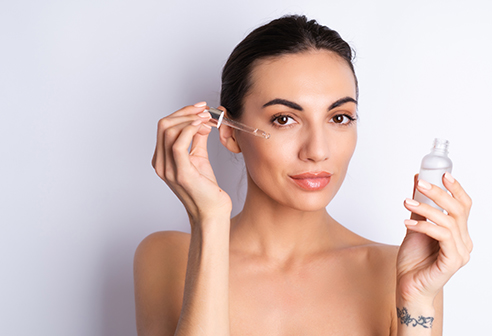
Glutathione, a colorless molecule composed of three oxygen atoms, is the most important supporter of our immune system in combating reactive oxygen species and free radicals in the human body. Thanks to its strong antioxidant properties, Glutathione is made up of three different amino acids:
- Cysteine
- Glutamine
- Glycine
A high level of glutathione in a person's body makes them healthier, more resistant to diseases, and increases their performance. Additionally, Glutathione contributes to the better functioning of our cells' energy powerhouse, the mitochondria. But what exactly is Glutathione?
Glutathione
Glutathione, formed from the combination of three amino acids named Glutamine, Glycine, and Cysteine, is found in the vast majority of human body cells. However, the most concentrated point in the body is the liver. Glutathione significantly boosts the body's immune resistance by fighting free radicals.
It is a powerful antioxidant that alleviates the symptoms of chronic diseases. Therefore, it is beneficial to consume glutathione-rich foods and, when necessary, to take external glutathione supplements.
How to Understand Glutathione Deficiency?
With advancing age, the body's glutathione production begins to decrease. As our glutathione production declines, the amount of toxins in our body increases. The reduction of this antioxidant, which is extremely important for our immune resistance, leaves our body defenseless against free radicals. In such a case, it is inevitable for free radicals to cause great damage to our body.
As glutathione circulates in the body, it simultaneously collects free radicals (bad molecules). When it reaches the end of its free radical collection capacity, it goes to the liver to regenerate itself. Under normal conditions, about ten percent of the glutathione in our body is in an oxidized state, while ninety percent continues to work actively.
When a person's active glutathione level falls below ninety percent, free radicals begin to damage the body. Continued accumulation of toxic substances further reduces glutathione production. If a person's glutathione level in the body drops below 70 percent, serious immune problems begin to appear.
There are two different factors contributing to the decrease in glutathione levels. Internal factors are related to the body's increased need for glutathione, while external factors stem from exposure to toxic substances. If we were to list the toxic substances that suppress and reduce glutathione production:
- Paracetamol
- Additives found in packaged foods
- Food Dyes
- Acetone and similar solvents
- Heavy metals
- Household cleaning products
- Artificial sweeteners
- Pesticides
- Alcoholic beverages
- Chlorinated Water
- Chemical kitchen utensils
- Cigarette Smoke
- X-rays
- Inadequate and unbalanced nutrition
- Cartridge inks used in photocopying and printing
- Depression
- Excessive exercise
- Chronic stress
- Anxiety and worry
Duration of Glutathione Treatment
Glutathione Treatment, applied in sessions, should generally be continued for 4 to 10 sessions when first applied. It is administered once or twice a week. Single-session applications or monthly sessions are also available options if desired. After the completion of the tenth session, the positive effects of the treatment become clearly visible. This application, which can be repeated if needed, continues to have effects for two to four months even if not repeated.
Glutathione Treatment
Intravenous glutathione administration is the most successful method. The person feels no pain, and the glutathione given intravenously quickly begins to be effectively utilized by the body. This application can be completed within 10-15 minutes.
It should be remembered that glutathione supplements cannot be taken orally. This is because glutathione given for supplementation entirely loses its effect in the stomach and cannot provide any benefit to the person's body.
In intravenous glutathione supplementation, the substance directly enters the bloodstream. In this way, it immediately begins to fight free radicals in the body. The person's cells gain an extra protective power.
Side Effects of Glutathione Deficiency
A decrease in glutathione levels in the body causes certain problems. If we were to list these effects:
- An increase in the person's stress level is observed.
- The body's immune system collapses. Its resistance to diseases decreases, and it becomes more vulnerable.
- The severity of diseases increases.
- The liver becomes unable to excrete fat from the body, and the person develops fatty liver disease.
- An increase in the number of cancerous cells in the person's body occurs.
- Toxic substances cannot be eliminated and begin to destroy the body.
- The body struggles to balance blood sugar levels, and the risk of diabetes arises.
- Patients undergoing chemotherapy begin to suffer damage due to the radiation they receive for treatment.
- Vessel blockages and narrowings occur. This opens the door to heart diseases.
Benefits of Glutathione
In individuals receiving glutathione supplementation, age-related symptoms significantly decrease. The person's risk of disease also substantially drops. Glutathione supplementation is also used for the treatment of Alzheimer's disease. If we were to list the benefits of glutathione supplementation:
- Provides support in autism treatment.
- Prevents fatty liver.
- Effectively used against sleep apnea.
- Increases protein, enzyme, and bilirubin levels in the blood.
- Allows the person to achieve a younger and more vibrant skin appearance.
- Provides skin tone whitening.
- Ensures the elimination of toxic substances accumulated in the body due to smoking.
- Reduces oxidative stress in the body.
- Contributes to the treatment process of Parkinson's disease.
- Prevents insulin resistance in elderly individuals.
- Protects cells.
- Accelerates the process of cell self-renewal.
In addition to all these, it also contributes to reducing the negative effects of chemical drugs and harmful substances on the body. It is effective in protecting many organs, especially the liver. It prevents the formation of cancerous cells. If a person's glutathione level in the body is sufficient, the risk of tumor development is also low.
Glutathione-Rich Foods
Among the plants found in nature, the richest in glutathione is Milk Thistle. Besides that, cheese also contains a significant amount of glutathione. GMO foods are among the most important reasons for us to ingest toxic substances. Therefore, it is beneficial to stay away from GMO foods and consume natural foods.
Click to get detailed information about Glutathione Treatment with Dr. Lida Çiteli, a leading name in medical aesthetics, regional slimming, laser hair removal, and immune treatments.



